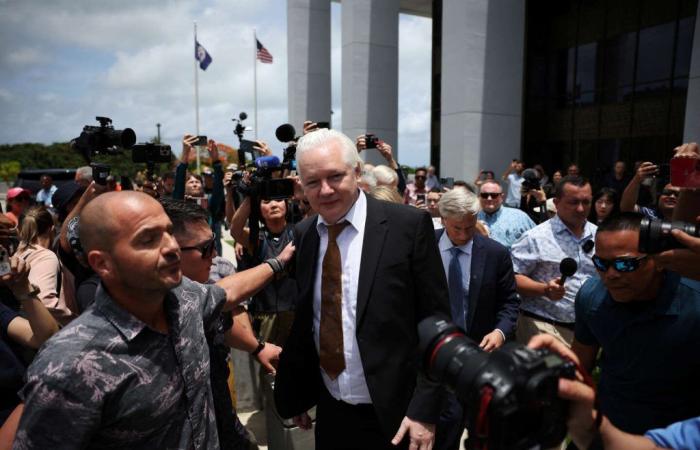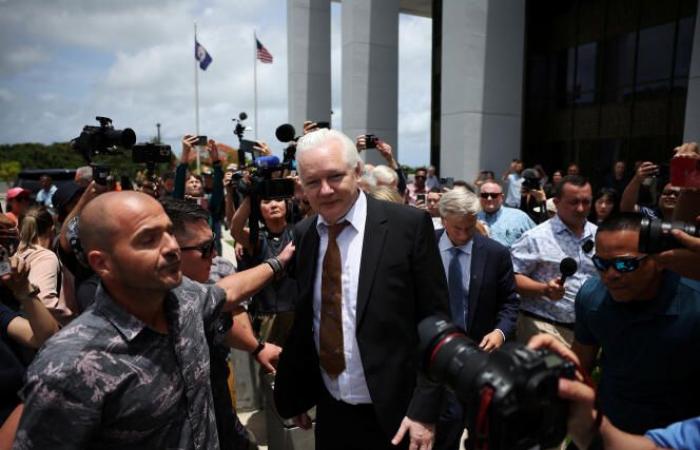CThis is the surprise resolution of a case more than twelve years old. WikiLeaks founder Julian Assange is now free after pleading guilty in a US court in Saipan (Mariana Islands) on Wednesday June 26 to soliciting and disseminating classified documents. Sentenced to sixty-two months in prison, which he has in fact already served, he was able to leave the court, chosen for its relative proximity to the whistleblower’s native Australia. At 52 years old and after several years of flight, seclusion in an Ecuadorian embassy then incarceration in a British prison, Julian Assange is no longer the subject of legal proceedings. The other case concerning him, a rape proceeding which had been opened in Sweden, was closed in 2019.
Supporters of the founder of WikiLeaks are rightly delighted to see him free today. The sentence handed down is in fact well below what the Australian could theoretically incur (one hundred and seventy-five years of imprisonment), despite the dissemination by WikiLeaks, in 2009 and 2010, of tens of thousands of classified documents relating to American diplomacy and the wars in Iraq and Afghanistan had greatly irritated the authorities.
But in practice, the plea deal carries a heavy symbol for journalism: Julian Assange was, according to court documents released this week, convicted under the Espionage Act, a harsh law whose possible use against the press is one of the most contentious debates in the history of free speech in the United States. But Assange’s supporters have always argued that what he was being prosecuted for was journalistic work revealing information in the public interest.
A controversial text
Adopted in 1917 in the United States, the Espionage Act penalizes the act of fraudulently obtaining or disseminating classified documents relating to national security. In a century of existence, it has been the subject of numerous criticisms, the meshes of its net being too indiscriminate, leaving an extremely wide margin of appreciation to the authorities.
Read the decryption | Julian Assange: chronology of a fierce legal battle
Add to your selections
“A major problem with the law is that it does not distinguish, on the one hand, people who leak classified information with foreign powers in a gesture hostile to the United States, and those who, on the other side, share information with the press in order to inform the American public of government misdeeds”recalled in 2022 Jameel Jaffer, lawyer specializing among other things in the law of freedom of expression, to the specialized site Politico. At the beginning of the 20the century, part of the text, since rendered inoperative, had been used to target political opponents – notably socialists – in the United States.
You have 55.63% of this article left to read. The rest is reserved for subscribers.







